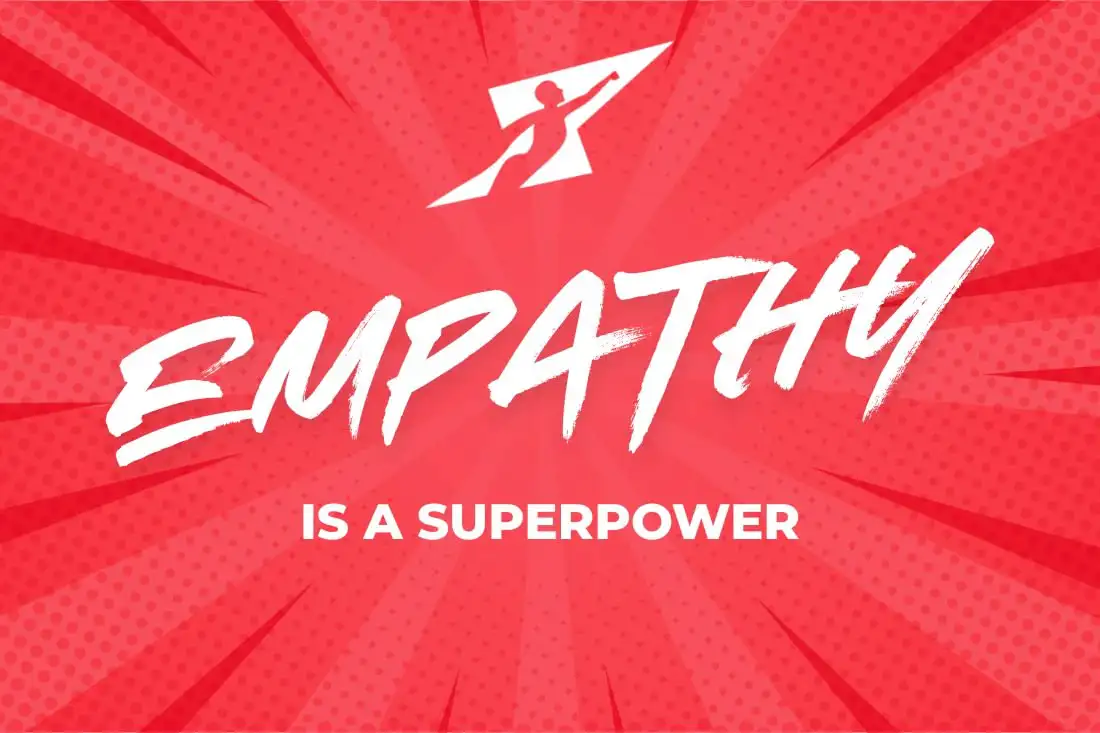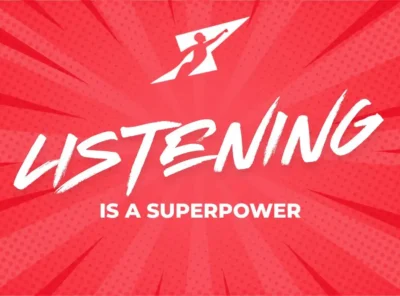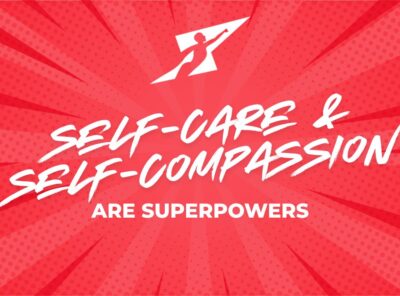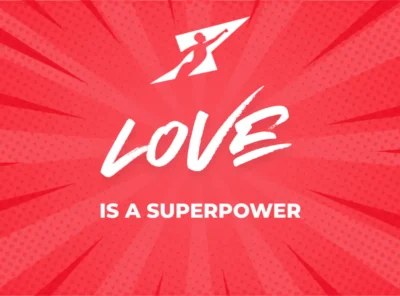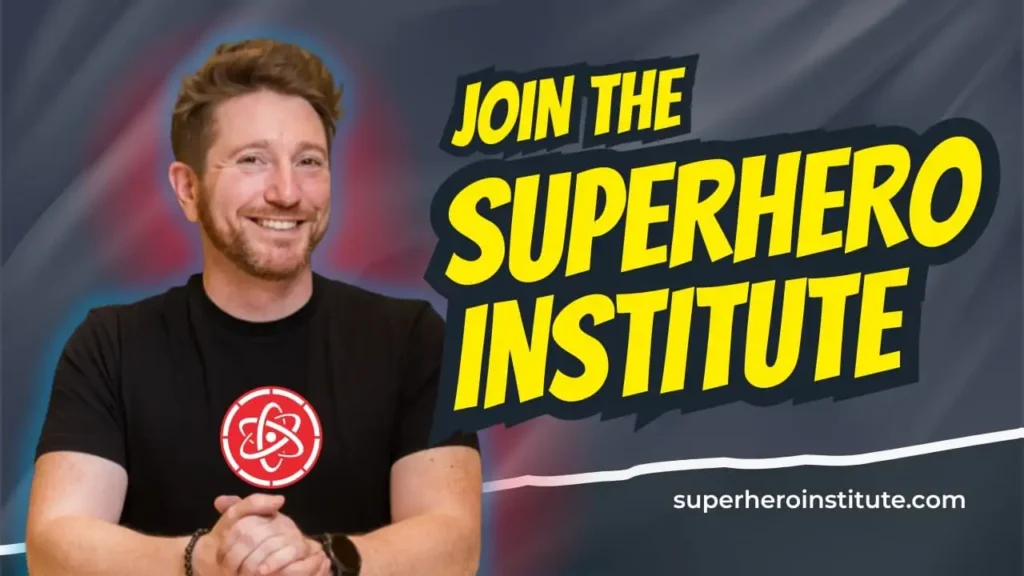Empathy is a Superpower
Author’s Note: I’ll be capitalizing Empathy throughout this post, because I’m using it as a proper noun—as shorthand for the superpower known as Empathy.
Empathy is as natural to the human experience as breathing.
And much like breathing, bad things happen when we don’t do it.
The easiest way to understand empathy, is to think of it as your capacity to imagine what it’s like to “walk in another person’s shoes.” It’s an imaginative exercise.
The more vividly you can picture another person’s experience, the more deeply you can understand where they are coming from.
As you master this ability, you’ll have an easier time understanding how people make decisions, what they might need in a given situation, and how to handle your relationship with them. But be careful, like all abilities, this can be used for good or evil.
Today, let’s talk about why Empathy is a superpower, and how you can master it.
If you do, you can become someone people trust faster, someone who more easily handles conflict, and who can help make the world kinder, safer, and more equitable.
✉️ Get the Infinite Impact
Join thousands getting weekly wisdom on unlocking hidden potential, building meta-abilities, and creating meaningful change through practical frameworks you can use immediately.
Distinguishing Terms
It’s important to clarify the difference between some terms that are often confused, misunderstood, or used interchangably: empathy, sympathy, and compassion.
Sympathy is expressing sadness, pity, or condolensces, from the outside. It’s saying “I’m sorry for your loss” or “thoughts and prayers.” It’s nice, it’s polite, but it’s ultimately offered from a distance.
Empathy is the ability to understand what someone is feeling or experiencing, because you can imagine or recall having experienced the same thing. It comes from a place of curiousity and connects from a place of understanding. It’s closer to the person. It’s saying “I can imagine how you feel, I remember when I lost someone close to me.”
Compassion is when your Empathy drives you to act. That can be doing something or saying something. It’s saying “that really sucks, I’m sorry you’re going through that. I know you have a lot going on, I’m going to take care of dinner for you this week. ”
It’s important to understand these differences. Many people think that their sympathy is empathy. It’s not.
Healthy Empathy
When you are engaging with someone who is experiencing a challenge or hardship, you may find yourself searching for the appropriate way to respond. Now that you know the different between sympathy and empathy, you set out to empathize with them. This is where it is important to understand how to practice Empathy effectively.
Healthy Empathy has limits.
Empathy is the ability to understand and see where someone is emotionally—without losing yourself in their experience or over-identifying with it. When you start to get swept away in someone else’s experience, you risk losing another valuable perspective: your own.
Healthy and effective Empathy means staying grounded and letting their perspective inform your own.
On “Using” Empathy
As you develop this ability, you see countless benefits.
- You will notice how it helps bring you closer to people.
- You will see that it helps to get people to open up to you.
- You see that it helps you neutralize conflicts more effectively.
It’s here that some people begin to use Empathy, rather than practicing it.
But, Empathy is not a tactic.
- It’s not a manipulation technique.
- It’s not a way to get what you want from people.
- It’s not something you “turn on” when it’s convenient.
It’s something you practice in all of your interactions to more deeply understand other people, to create deeper connections, and to more effectively solve problems.
It’s a way of moving through the world—a default setting of care and curiosity. A choice to see people fully, even when you don’t have to.
Practicing Empathy isn’t just “good for others.” It’s transformational for you. Because when you lead with Empathy, you unlock trust, understanding, and momentum—without the constant push and pull of misunderstanding.
How to Build Empathy (Step-by-Step)
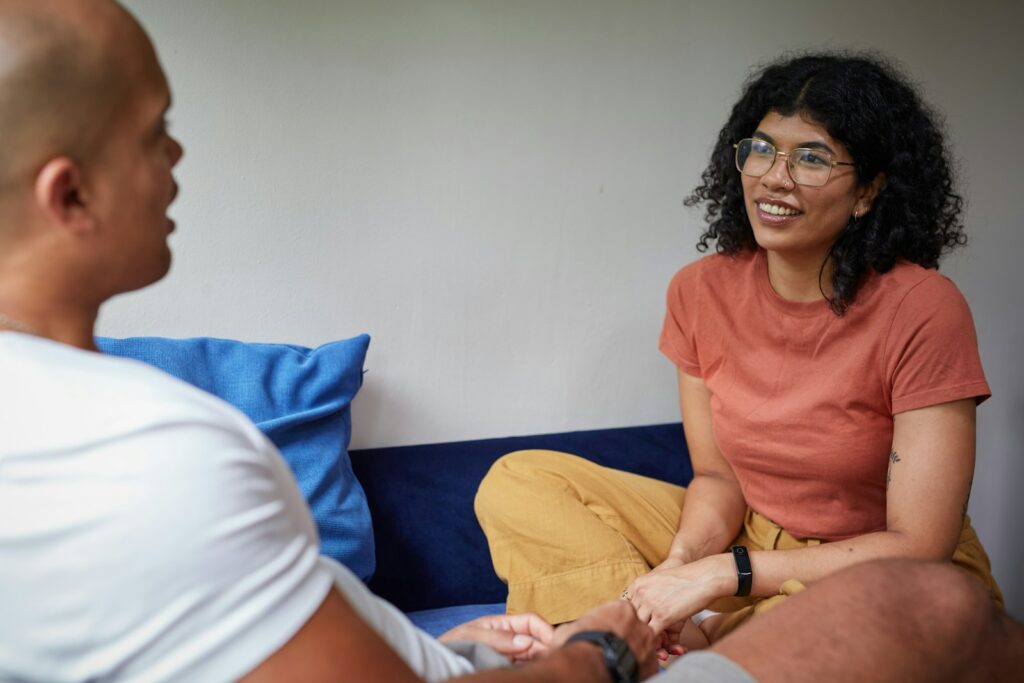
Like any superpower, Empathy gets stronger the more you use it. It also gets easier and eventually becomes second nature. While the idea is simple, the practice takes commitment.
Here’s how to begin.
Step 1: Start with Curiosity
Before you can understand someone, you have to want to.
Start with low-stakes opportunities: watch a movie, read a novel, engage with a story.
Pause at different moments and ask yourself:
“What would it feel like to be in their position right now?”
Focus not just on what’s happening—but how it might feel. Begin tying events to emotions in your mind.
This is how you start building emotional maps.
Step 2: Ask About Feelings
In your daily conversations, practice asking people about their feelings and thoughts. You’re looking for the “Director’s Cut” of the story. Try asking…
“How were you feeling as that happened?”
“What was that like for you?”
Gather beyond facts. Don’t rush to problem-solve. Don’t assume you know.
Let them paint the picture, and listen without judgment.
Step 3: Build Emotional Maps
After interactions, reflect:
How did they feel? Why might they have felt that way? What else might be going on that could shape those emotions?
Over time, you’ll start recognizing emotional patterns, both in yourself and in others.
The more patterns you recognize, the better you’ll navigate real-time situations with care.
Step 4: Support Instead of Solve
When someone’s emotions are heightened by fear, shame, orsadness, Empathy lets you recognize it without judgment.
Instead of reacting automatically, you pause and think:
“How can I meet them where they are before moving forward?”
- Sometimes that means offering comfort.
- Sometimes it means giving space.
- Sometimes it just means listening longer.
Empathy gives you the power to support re-regulation, not just rush toward solutions.
The Double-Edge of Empathy
When you master Empathy, all of the following can happen:
- People feel safer around you.
- Trust builds faster and deeper.
- Conflict becomes easier to navigate—and often avoid altogether.
- Solutions come faster because people feel heard and understood.
- Teams move with more alignment and less friction.
- Personal relationships become richer, more resilient, and more joyful.
But there is a dark secret of Empathy that very few people talk about, but it’s important that you know.

Empathy is atunement — the window into other people.
The very same things that give you the power to make people feel safe, can be used to instill fear, to stoke insecurities, to agitate trauma.
At the same time, locating the source of someone’s insecurities and fears, is the path to making them feel safe, to validating them, and to supporting them through their growth.
It is two powerful sides of the same coin and with this great power, there must also come — great responsibility.
Nearly all superpowers are morally and ethically neutral, by default. It is what we do with these abilities that determine if we are heroes or villains.
I hope that you will use your Empathy to turn disconnection into collaboration, and isolation into community, and pain into belonging.
Start today
You have the chance to start a ripple effect.
One empathetic teammate shifts a whole team dynamic → One empathetic leader changes an organization → Many empathetic humans—together—can change the world.
Pause one moment longer. Ask one deeper question. Then, imagine yourself in their position.
You don’t have to be perfect.
You don’t have to have all the right words.
You just have to be willing to try—and willing to care enough to understand.
Empathy as their Superpower — I hope you weild it to change the world for the better.
P.S. A Note on the term “Empath”
There are a number of people you may have encountered, or will in the future, who will confidently state “I’m an Empath.” You, reading this now, may have even said this before.
So, let me say in the clearest terms, the following is not meant to be an attack.
Instead, I want to share why I take issue with the term and discourage people from using it.
To call oneself “an Empath,” immediately creates a division between them and other people — as if they are something different. As I see it, there are few things less empathetic than declaring to someone “I have so much more empathy than other people.” When someone says this to me, I immediately find myself skeptical and cautious.
Empathy isn’t a competition and it’s not badge of honor. When you have it in abundance, people will notice it without the need for a self-declared special distinction. Empathy is available to all of us, some people just have an easier or more difficult time accessing it.
So, my advice is that as you develop this ability, resist the urge to self-assign a title. Just practice it regularly.
You might also be interested in…
I hope you enjoyed this post!
If you liked this post, then you will LOVE my newsletter (The Infinite Impact)
and my learning community (The Superhero Institute).

